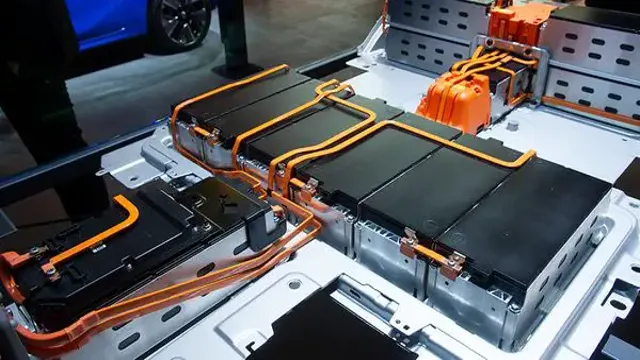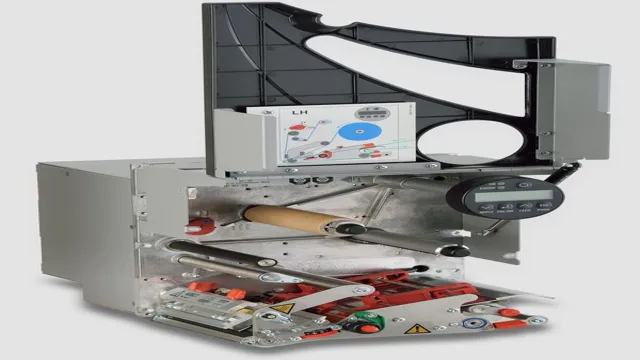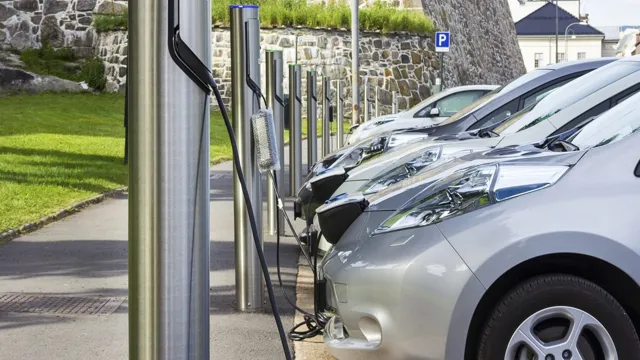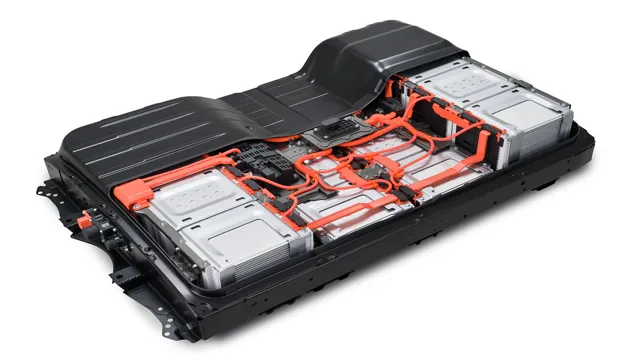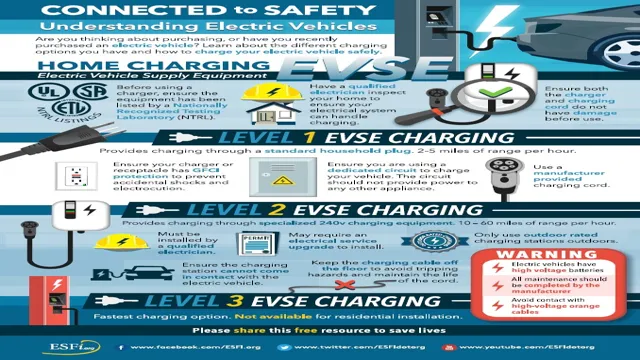Revolutionizing the Road: Uncovering the Latest Cell Technology for Electric Cars
Electric cars have revolutionized the automobile industry with their eco-friendliness and low operating costs. However, their effectiveness depends on the type of battery technology they use. Today, we’re witnessing a massive shift in the battery technology that powers electric cars.
New cell technology is gaining traction, which promises to resolve some of the inherent limitations of traditional battery technologies. In this blog, we’ll explore the exciting new developments taking place in the world of electric car battery technology and what this means for the future of transportation.
Introduction
Exciting news has emerged from the world of electric cars! Scientists have developed a new cell technology that promises to revolutionize the industry. These new cells utilize a solid electrolyte instead of the traditional liquid electrolyte, which provides several benefits including increased safety, higher energy density, and longer lifespan. Not only will these improvements make electric cars safer and more efficient, but they’ll also help reduce the overall environmental impact of traditional gas-powered vehicles.
With the demand for sustainable transportation growing every day, this new technology couldn’t have come at a better time. It’s exciting to think about the possibilities of what the future of electric cars will look like with this game-changing advancement in cell technology.
The Current State of Electric Cars
Electric cars have taken the world by storm in recent years, and most people are wondering how they can influence the reduction of carbon emissions. In light of the massive drive towards a greener future and the fight against climate change, electric cars are the latest trend, and they seem to be here to stay. With the environmental benefits that come with them, it’s no wonder that many people are ditching their gasoline-powered vehicles for electric ones.
Nevertheless, there is a long way to go before electric cars become the norm. While the demand for electric cars is increasing, the production of batteries is still in its infancy, leading to an industry bottleneck. The demand for electric cars is growing faster than supply.
However, we can expect this to change as advancements in technology lead to more affordable and efficient batteries in the coming years.
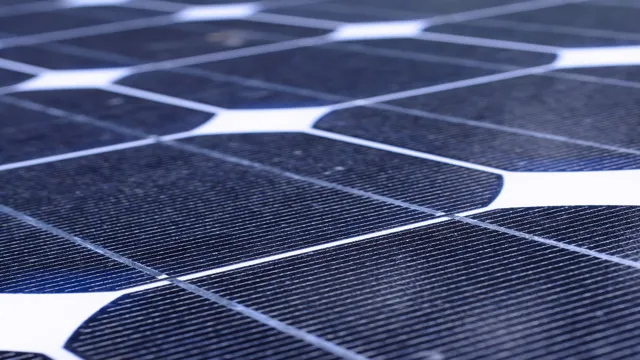
The Need for Improved Cell Technology
Improved cell technology is the need of the hour. In recent times, we have seen a surge in demand for better and efficient power-cell technology. With our increasing reliance on electronic devices, the need to develop better and more reliable battery technology that can hold a charge longer, charge faster, and be safer for the environment becomes critical.
The use of fossil fuels has been the leading source of our power for decades, but with the rise of renewable energy and the depletion of fossil fuels, it’s high time that we come up with a robust and sustainable alternative. The development of improved cell technology has become necessary to sustain and support diverse industries such as transportation, healthcare, electronics, and communication. With a growing demand for clean energy and eco-friendly products, advances in cell technology have the capacity to revolutionize the way we operate and work in the future.
Benefits of New Cell Technology
New cell technology for electric cars is bringing about a revolution in the automotive industry. These new cells, made from materials like silicon and lithium-sulfur, offer increased energy density, faster charging times, and longer lifespans than traditional batteries. This means that electric cars powered by these new cells have a longer range and can be charged more quickly.
In addition, they are more environmentally friendly, producing less waste and requiring fewer resources to manufacture. Overall, the benefits of this new cell technology for electric cars are clear: it offers improved performance, greater convenience, and a greener driving experience. As more and more car manufacturers adopt this technology, the future of electric mobility looks brighter than ever.
Increased Range
The benefits of new cell technology are numerous, one of the most significant being increased range. With advancements in cell technology, we can now enjoy greater coverage and reliability no matter where we roam. Gone are the days when we had to navigate dead zones and dropped calls.
New cell technology is designed to provide a stronger, more reliable signal, resulting in a better overall user experience. Whether we are in a remote location or a densely populated urban area, new cell technology ensures that we stay connected and reachable. This is not only convenient for personal use but is also essential for business and emergency situations.
With increased range, we can now communicate with ease, regardless of where we are. It’s remarkable how technology continues to improve our lives, and new cell technology is a perfect example of this.
Faster Charging
With technology advancing daily, so is the cell technology. New cell technology is ushering in faster charging capabilities in mobile devices, revolutionizing how we use them. Faster charging means we spend less time tethered to charging stations and more time getting things done.
One of the benefits of this new cell technology is that it allows for faster charge times, even when you’re in a rush. The keyword of faster charging technology will significantly overhaul how people perceive smartphones and other mobile devices, making them more dependable when it comes to extended use. This new technology means that you can have your phone charged in minutes rather than hours, giving users more freedom to get things done and communicate effectively.
With faster charging, users can stream movies, make videos or perform other tasks safely on their phones or other mobile devices without battery related issues. As the demand for reliable mobile devices grows, chipset makers are expected to integrate the faster-charging technology, which will undoubtedly be a game-changer in the mobile industry.
Reduced Battery Degradation
The benefits of new cell technology are vast and one of them is reduced battery degradation. With the development of this new technology, cells can now last longer without deteriorating quickly which means your device will last longer too. Battery degradation is a natural process that happens over time due to repeated charging and discharging cycles.
However, with this new technology, the number of cycles a battery can undergo before degradation starts, has increased. This is achieved by utilizing different materials in the manufacturing process that can withstand and maintain the battery’s performance for a longer period of time. Therefore, you can now use your device for longer without worrying about the battery’s health deteriorating quickly.
This is a significant improvement in technology that has resulted in a hassle-free experience for many users.
Emerging Cell Technologies
Electric vehicles have been the talk of the town for quite some time, with people constantly discussing the potential for more environmentally friendly options. One area where advancements are currently being made is cell technology. New cell technology for electric cars is being developed that could potentially revolutionize the automotive industry.
These new cells are designed to be more efficient, allowing vehicles to achieve a longer range on a single charge. Additionally, they’re also smaller and lighter, meaning they’ll take up less space and weigh less than traditional cells. Engineers and scientists are working hard to perfect this new cell technology, so motorists can enjoy more affordable and eco-friendly options on the road.
With a focus on sustainability and the environment, it’s likely that we’ll continue to see progress in this area as time goes on.
Solid-State Batteries
Solid-state batteries are a promising emerging technology that could revolutionize the way we power our electronic devices and vehicles. Unlike traditional lithium-ion batteries that use liquid electrolytes, solid-state batteries use a solid electrolyte. This solid-state eliminates the risk of fire and explosions associated with liquid electrolytes, making them a safer alternative for consumer electronic devices and electric vehicles.
Moreover, solid-state batteries can deliver higher energy density, which means they can store more energy in the same volume or weight as traditional batteries, resulting in longer-lasting devices or longer drive ranges for electric vehicles. However, solid-state batteries are still in the development phase, and their production costs remain high. Nevertheless, companies are actively investing in developing solid-state battery technology, and it is only a matter of time before we see these batteries in widespread use.
They promise to be a game-changer in the energy storage industry, and we can expect them to play a pivotal role in shaping the future of energy.
Lithium-Sulfur Batteries
Lithium-sulfur batteries are one of the most promising emerging cell technologies in recent years. Unlike traditional lithium-ion batteries, lithium-sulfur batteries have a higher energy density and more affordable materials. These advancements can pave the way for longer battery life and more efficient use of renewable energy sources.
Lithium-sulfur batteries are also eco-friendly, which is critical as we all work towards a greener planet. However, lithium-sulfur batteries have some challenges to overcome, such as limited cycle life and poor stability at high temperatures. Researchers are working tirelessly to address these shortcomings to make lithium-sulfur batteries a viable option for everyday use.
In the not-too-distant future, we might see lithium-sulfur batteries replacing traditional lithium-ion batteries altogether. So, watch out for this promising technology in the next few years!
Future of Electric Cars with New Cell Technology
Exciting advancements in new cell technology for electric cars are on the horizon, promising to revolutionize the way we think about sustainable transportation. With the development of solid-state batteries, electric vehicles may be able to achieve longer driving ranges and faster charging times, ultimately making them more practical for everyday use. In addition, these solid-state batteries are safer and more stable, reducing the risk of fire or explosion.
This new technology has the potential to transform the electric vehicle market and make electric cars more accessible to a wider audience. The possibilities seem limitless, and as research and development continues, we can expect to see even more innovative breakthroughs in the world of electric cars. Swapping traditional batteries for new cell technology promises an incredible new era of sustainability in the automotive industry, changing the way we travel and ultimately reducing our carbon footprint.
Conclusion
In conclusion, the new cell technology for electric cars represents a leap forward in the world of transportation. With its increased energy density and improved lifespan, drivers can feel confident in the reliability and sustainability of their electric vehicles. This technology is not just a step in the right direction, it’s a giant leap towards a more sustainable future.
So, buckle up and get ready for a smooth, quiet, and eco-friendly ride with the new cell technology for electric cars – it’s the electric revolution we’ve all been waiting for!”
FAQs
What is new cell technology in electric cars?
New cell technology in electric cars refers to advanced battery designs such as solid-state batteries, which provide higher energy density, faster charging capabilities, longer ranges, and improved safety features compared to traditional lithium-ion batteries.
How does new cell technology benefit electric cars?
New cell technology benefits electric cars by offering longer ranges, faster charging times, lower cost, and improved sustainability. It can also enhance the overall performance and safety of electric vehicles and reduce their carbon footprint.
What are solid-state batteries in electric cars?
Solid-state batteries in electric cars are advanced battery technologies that store energy in solid electrodes instead of using a liquid electrolyte. These batteries offer higher energy density, faster charging times, and improved safety features compared to traditional lithium-ion batteries.
How can new cell technology help in the adoption of electric cars?
New cell technology can help with the adoption of electric cars by making them more appealing to consumers due to their longer ranges, faster charging times, improved performance, and lower costs. It can also make electric vehicles more accessible and convenient for public use.
